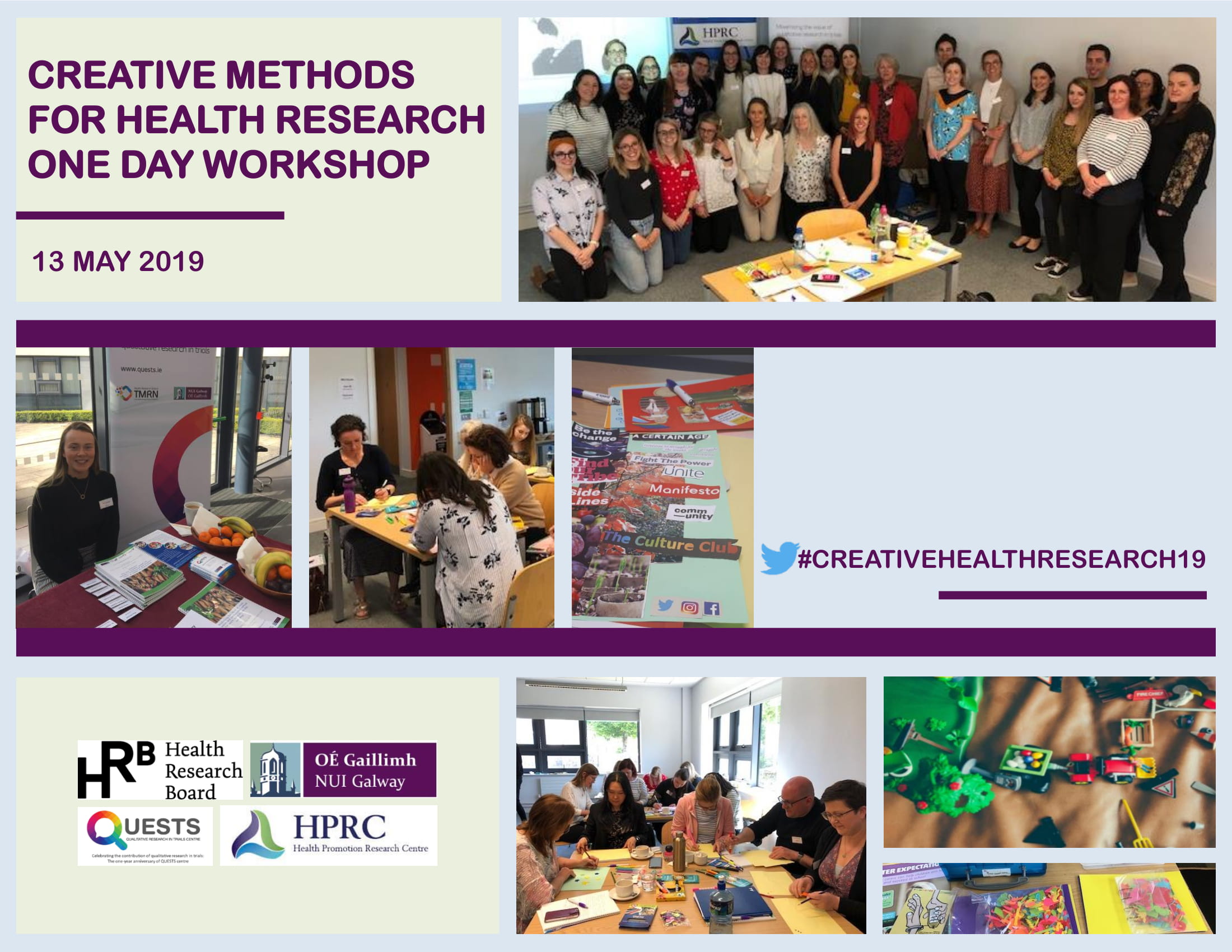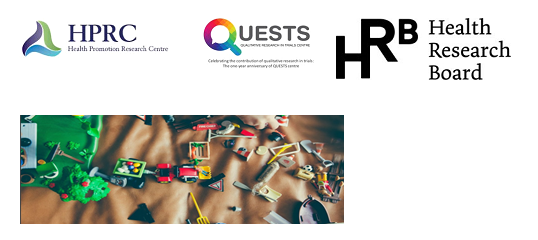
People most likely to be affected by research are often those least likely to participate in research, and inappropriate research methods can be an additional barrier to effective and meaningful participation (Cargo & Mercer, 2008). Moreover, there are many research questions that require innovative approaches to evoke real and meaningful responses and emphatic understanding of the ways in which other people experience their worlds. For example, creative approaches may help us better understand how people experience the health service and can help to illustrate the health service they wish for. Creative research approaches can also be used within a participaory framework and provide opportunities for research with young children and those reluctant to engage in traditional research approaches.
In an effort to increase the knowledge, skills and confidence of researchers and practitioners in the use of creative and visual research methods, a one day workshop was held in NUI Galway in May 2019. Creative methods include drawing, collage, sandboxing, emotion stickers, photo-elicitation, artefacts and plasticine modelling. These methods can be used to engage more diverse groups in studies and therefore increase the reach of research. These methods can also increase the impact of research, through enabling active participation in research as well as dissemination of research.
The overall aim of the workshop was to equip researchers with the tools to undertake more innovative research methods to promote more participant-centred approaches to data collection. This will ultimately enhance recruitment and participation into health care research and give greater voice to participants who may have previously declined. Coupled with this was the vision to build a network of practitioners, organisations and researchers with an interest in using and promoting creative and participatory methods. There is a dearth of expertise in creative methods in Ireland, which this workshop has begun to address.
The one-day workshop was practical and interactive, with 33 delegates in total from a range of disciplinary backgrounds. Participants obtained hands-on experience of different creative methods. The feedback on the event was excellent, with the balance of academic and practical application highly valued.
The workshop was organised by Dr Colette Kelly (Director of Health Promotion Research Centre, NUI Galway), together with Dr Catherine Houghton (co-Chair of QUESTS, NUI Galway) and Marita Hennessy (HRB SPHeRE PhD Scholar, NUI Galway). Dr Dawn Mannay, Reader in Social Sciences, Cardiff University facilitated the workshop. Dawn is an expert in creative methods and an experienced workshop facilitator. . Dawn is the sole author of the text for Routledge (2016), ‘Visual, narrative and creative research methods: application, reflection and ethics’. Dawn has an interest in increasing the impact of research findings through the use of film, art work, music and a range of other participatory and co-produced multimodal materials; see here for an overview.
To get a flavour of the day see here and a summary view here.
Videos of the event are also available here for those who would like to learn more about this approach.
For further information contact: colette.kelly@nuigalway.ie
References:
Cargo, M., & Mercer, S.L. (2008). The value and challenges of participatory research: strengthening its practice. Annu. Rev. Public Health. 29:325–50.
Mitchell, K.M. & Clarke, A.M. (2018) Five Steps to Writing More Engaging Qualitative Research. Int. J. Qual. Methods 17(1):1-3. https://doi.org/10.1177/1609406918757613.


